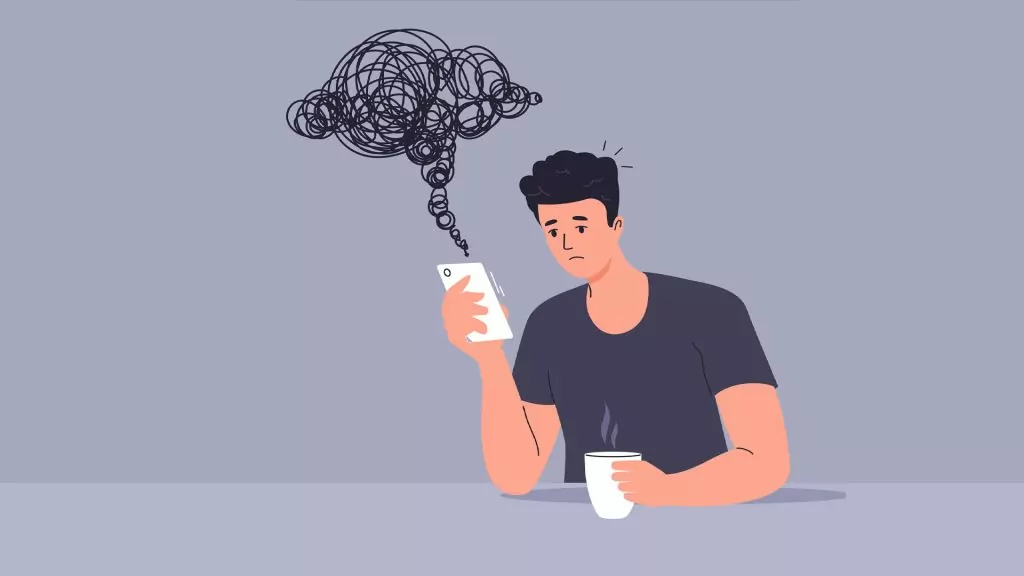How to use AI like a Christian boss
Imagine you’re the boss of your own company. After months of searching, you’ve just landed the most brilliant assistant in the country. He’s lightning-fast, top of his class in every subject, and available 24/7. He never sleeps, never complains, and never forgets a deadline. You can ask him for ideas, outlines, editing help – even technical research – and he’ll give you an answer in seconds. Best of all? He’s already sitting at your desk.
His name is AI.
Now here’s the catch: he’s not human and doesn’t share your values, or know right from wrong, and he always speaks with confidence even when he’s completely wrong.
If you hand over your work to him, he might give you something that sounds smart, even impressive. But he might also serve up something misleading, shallow or just plain false. And because you’re the boss, it’s your name – and your integrity – on the line if anything goes wrong.
Most of us aren’t bosses of our own companies…but every Christian has a calling to steward time, talents and resources. From the beginning, God made man to rule over creation (Gen. 1:26), and that includes ruling – rather than being ruled by – technology.
There are valid reasons to approach AI with caution (as we’ve seen in previous Reformed Perspective articles like “Will AI Replace Reading?” and “Is AI Just Another Tool – or Something More?”).
Even so, AI is here to stay, and it’s already reshaping the job market, communication, and everyday life for many people. One global management group says AI has the potential to be as transformative as the steam engine.
AI is a tool unlike anything we’ve seen before, but at its core, that’s what it remains: a tool. And like any tool, it can be used for good or evil, depending on the people designing and directing it.
Used wisely, AI can be an excellent assistant, capable of drafting hundreds of words in a short time. However, not all that AI produces is wise, relevant or true. That is why it’s important to think critically and test everything it says. Proverbs 14:15 reminds us,
“The simple believes everything, but the prudent gives thought to his steps.”
Just as it would be unwise to operate heavy machinery without proper training, Christians should not use AI without preparation and thoughtfulness. Quick answers can be tempting, but Proverbs 21:5 reminds us:
“The plans of the diligent lead surely to abundance, but everyone who is hasty comes only to poverty.”
Rushing to use AI without wisdom or careful review can lead to shallow or even dangerous results.
I work as a project coordinator for a company that produces curriculum and I use AI almost daily in my work. It’s helped me draft content, edit writing, brainstorm ideas, and even develop Christian material (it does know a thing or two about Reformed theology). But I’ve also seen how quickly it can go off course.
Used wisely, AI can be part of faithful stewardship. If you’re considering AI – or already using it – these seven principles can help you use it to the glory of God without compromising convictions or integrity.
1. Be the boss – not the bystander
AI is here to assist, not lead. Think of it like a new apprentice: helpful, fast, and tireless – but not wise. AI can draft an article, summarize a report, or give you a list of ideas, but it doesn't know whether those ideas are any good. That’s your job. Use AI to boost your productivity, not replace your discernment.
If you're an engineer or electrician, you know how this works already. An apprentice can be a huge help – they might prep materials, run calculations, or handle basic wiring to save you time. But when it's time to sign off on the plans or certify the work, it's your name that's on the line. If the apprentice makes a mistake and the building collapses or catches fire, you're the one held responsible. That’s why every detail needs to be carefully checked and approved by the licensed professional. AI is no different. It's an assistant – not the one who signs the final plans.
2. Think critically and watch for mistakes
AI tools are designed to sound convincing – but convincing doesn’t always mean correct. Sometimes they generate information that looks polished but is actually shallow, misleading, or outright wrong. This is known as a “hallucination.”
For example, a US lawyer who used AI for legal research is now facing his own court hearing after using false AI-generated information in court. The lawyer didn’t realize that several of the legal cases that AI had cited for him didn’t actually exist. He passed them along unchecked.
I’ve experienced many hallucinations myself, such as when I asked AI to clarify a punctuation rule and it said one thing in the rule and presented the opposite in the example it gave.
That’s why you can’t just copy AI’s response and hit “send.” You need to review the results carefully. If you’re using AI to explore a topic you don’t know well, make sure you double-check the facts, confirm the logic, and – if possible – ask someone with more experience to give it a second look.
AI has saved me significant time researching unfamiliar topics, but before finalizing anything, I verify the sources or have someone with expertise review it.
Ideally, you should have at least some grasp of what good work looks like in the area you’re using AI for. If not, treat the AI’s output as a starting point, not a finished product. Use it to learn, refine, and check your thinking… but don’t assume it’s right.
3. Train AI like an apprentice
What AI gives you after your first prompt is often just a rough draft. The result might be serviceable, but it’s rarely great unless the task is very simple. After all, apprentices need training. Here are some key tips for getting better results from AI:
• Tell AI the role it should take on (math teacher, history professor, writer, business expert, travel agent, event planner, etc.).
• Outline as many details as possible – task, tone, purpose, websites it can research, intended audience, length.
• Provide examples.
• Ask AI what questions it has for you.
• After reviewing the output, point out how AI can improve the results.
• Do a few edits of your own and let AI know what you did for future reference.
For example, a first prompt for writing could look like this – you would tell ChatGPT:
“Assume the role of an expert copywriter, familiar with Reformed theology as taught by John Calvin and R.C. Sproul. You are deeply familiar with the Heidelberg Catechism, Canons of Dort and Belgic Confession. Your job is to write articles for Reformed Perspective magazine. Here are some writing guidelines for this magazine…
“I'd like to write an article for this magazine titled ‘How to Use AI Like a Christian Boss.’ In it, I'd like to compare AI to a smart apprentice. You can use what they come up with, and it might be very good, but before an engineer or architect can put a stamp on it, they have to go through every detail and make sure that they stand behind it…
“Write this article in prose, but structured with numbered points for how to use AI like a Christian boss. Start with an outline. But before you do that, what questions do you have for me?”
The first prompt is just the beginning. After that, a “Christian boss” process would look like:
• Answering AI’s questions.
• Instructing it to draft the outline for the article.
• Carefully reviewing the outline, making some refinements yourself and/or telling AI to make refinements.
• Instructing AI to draft the article.
• Doing a detailed review and editing.
The edits can be done on your own or by prompting AI (see the next point for some tips on that). I usually do a mix of both personal and AI-prompted edits. With refinement, specific instructions, and key edits, working with AI can turn a mediocre first result into a solid piece of writing.
Note that because getting an excellent AI response often requires multiple rounds of prompting and giving feedback, it’s not always faster to use it for a task that you only need to do once.
4. Use AI like a creative sidekick
AI can be a great help when you need a creative boost. You might ask it to:
• Rewrite a sentence five different ways so you can choose the best version.
• Give practical examples to strengthen a concept you’re trying to explain.
• Help you generate ideas for starting or improving a project.
• Reword a section of text for clarity, flow, or tone.
• Give feedback and ideas for improvement on something you’ve written.
• Ask you questions to help you think about something in new or deeper ways.
Sometimes AI comes up with something surprisingly helpful. Other times it completely misses the mark. The key is to use it as a creative partner, not a crutch. Be prepared to write things yourself if AI just doesn’t give you what you need. (Yes, AI can have an off-day too.)
5. Protect your privacy – and your mind
AI tools aren’t generally private. What you type may be stored or used to train future models, depending on the platform. That means anything personal or sensitive might not stay confidential.
So be cautious. Don’t share anything you wouldn’t want repeated or misunderstood.
Because it can mirror your tone and affirm your ideas, AI can start to feel personal, to the point that some people have started treating it like a friend, therapist or romantic partner. However, hearing exactly what you want from a machine can pull you away from real, God-given relationships.
God calls us to grow in community, where we can be encouraged in our faith and held accountable when we wander. Proverbs 27:17 says, “Iron sharpens iron, and one man sharpens another” (ESV). AI can echo your own voice, but it will never call you to repentance, speak truth in love, or walk alongside you in genuine discipleship.
6. Train for discernment before you use it
Just as students need to understand what 2 + 2 means before using a calculator, Christians need foundational knowledge before turning to AI. Skills like reading, writing, theology, math, and logic help us recognize when AI is inaccurate, shallow, or biased.
AI is trained on massive amounts of data, and although it can recite the Heidelberg Catechism, most of its data likely didn’t come from a Christian perspective. One English teacher shared that when her students used an AI tool to give feedback on their writing, it consistently flagged Christian content as “too one-sided.”
Romans 12:2 warns:
“Do not be conformed to this world, but be transformed by the renewal of your mind, that by testing you may discern what is the will of God, what is good and acceptable and perfect.”
God calls us to use discernment. Without a strong grounding in Scripture, truth, and general knowledge, we won’t have the tools to spot harmful ideas or use AI wisely.
7. Don’t let AI replace real mentors
AI can be a useful support for learning, without replacing skill development. It can offer feedback, generate ideas or ask helpful questions to deepen your thinking. But it should never replace the guidance of real people.
For Christians, learning isn’t just about improving skills or producing results. It’s about growing in wisdom and character. AI can’t be trusted to help you think biblically, challenge you in love or walk you through real-life decisions. That happens best in relationships.
God commands, “Train up a child in the way he should go; even when he is old he will not depart from it” (Prov. 22:6). That is not a task we should trust to AI.
If young people are going to use AI, they need a strong biblical foundation and wise guidance. Without that, AI becomes a shortcut rather than a tool – and we can’t shortcut godly wisdom and discernment.
Conclusion
Used wisely, AI can strengthen our work and spark new ideas. But as Christians, we don’t just care about what works, we care about what honors God. “The fear of the Lord is the beginning of wisdom” (Prov. 9:10). Faithful stewardship isn’t measured by cleverness or creativity, but by our trust in Christ and obedience to His Word.
AI reflects the priorities of the person using it. So let’s bring ours under the lordship of Christ. Take responsibility. Stay alert. “Whatever you do, work heartily, as for the Lord and not for men” (Col. 3:23).
Whether you use AI or not, let this be your aim: to honor God in all things, rule over creation, and never let created tools rule over you.
P.S. In case you’re wondering, I did use AI like a Christian boss to write this article. See the short article below.
*****
WHOSE SPEECHES WERE THEY?
A quick conversation on having AI, and others, writing for us
JON DYKSTRA: The one question I know readers will be asking, so let’s give them an answer, is, approximately what percentage of the article is AI written? Or is that even something you can put a percentage on?
VALERIE VANDENBERG: That percentage question is a tough one. My process with AI involves a lot of back and forth.
To give some more details, by the time AI drafted the article, I had already given it about 1,500 words of my own instructions (including the ideas I had for the article and answering AI's questions for me) in addition to giving it your writing guidelines from the Reformed Perspective website.
JD: Can you get into the process just a bit more?
VV: My first prompt included my ideas for the article and detailed instructions for my vision for it. Then I had AI draft an outline, which I adjusted until I was satisfied. After that I instructed AI to draft the article itself, which was followed by detailed editing (sometimes done by me, sometimes prompting AI to edit a section, and usually a mix of both). I often have AI write things a few different ways so I can glean the best ideas from the list. Or I just write it myself if I think my idea is better than what AI suggested.
JD: This is something Reformed Perspective staff have been wrestling with, trying to think through the extent or limits we’d want to use ChatGPT or other AI. To this point I haven’t used it to generate text, but that’s been more a hesitancy – I’d like to listen in on the debate some more before coming to a firm conclusion – than any specific principled objections. Your article is a part of that debate, and I’m grateful for it.
My initial take is that using AI to generate text, as in this article, is akin to a president using a speech writer. The writer crafts the words, but the president sets the direction, and adds in his own tweaks and orders rewrites, such that at the end he will so completely own these words, that we will fully attribute this speech to him, and not the writer.
VV: Yes. The key Christian boss part of the process is that by the time I hit send to submit the article, every aspect of it (tone, content, structure, wording, etc.) is something I can stand behind, and as good as I could do alone or ideally better....































